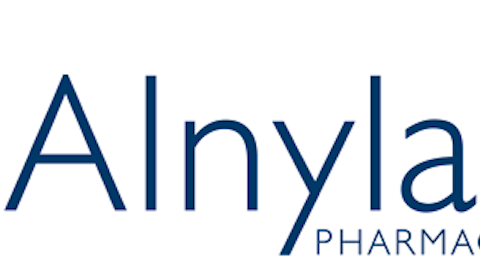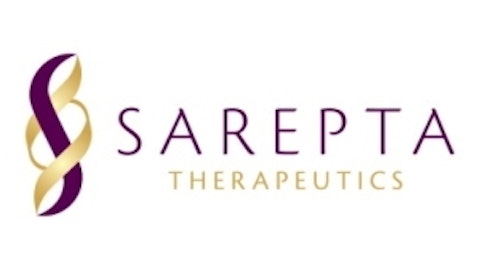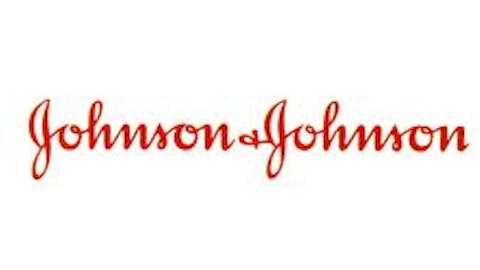
Zytiga’s not slowing down
Johnson & Johnson (NYSE:JNJ)’s total sales for the quarter were $17.88 billion. But one of its largest segments, global pharmaceuticals — with $7 billion in sales — grew 12% year over year. The primary reason for this growth was the continued strength of new product launches from Xarelto (an anticoagulant), Incivo (which treats hepatitis C), and of course, Zytiga.
For the second quarter, sales of Zytiga were $395 million. This represents a 70% year-over-year gain for the blockbuster cancer drug. Furthermore, it represents 71% growth for the first six months of 2013.
Now, in regards to Johnson & Johnson (NYSE:JNJ)’s long-term stock performance, Zytiga has little meaning. Analysts project peak sales of $1.8 billion by 2015, which is fairly small in comparison to the company’s near $70 billion in annual revenue. However, these sales are crushing for Dendreon Corporation (NASDAQ:DNDN).
Connecting the dots
Dendreon Corporation (NASDAQ:DNDN) markets Provenge, which also targets late-stage prostate cancer patients. In 2011, it was one of the only drugs for this disease on the market, and analysts projected peak sales over $1 billion. However, analysts and investors have since feared how the company would respond to both Zytiga and Medivation Inc (NASDAQ:MDVN)’s new prostate cancer drug Xtandi.
Last quarter, for the first time since Provenge’s launch, sales of the drug declined year over year. The 17.6% decline was not expected, and management was honest about the impact of new competition. At the same time, while sales of Provenge were just $67.6 milllion, Zytiga’s sales grew more than 70% to $344 million. This showed a direct correlation between the declines of Provenge and the success of Zytiga.
Now, in this most recent quarter, sales of Zytiga have grown even more rapidly, at nearly $400 million. Therefore, common sense suggests more pain for Dendreon Corporation (NASDAQ:DNDN). Moreover, sales of Medivation Inc (NASDAQ:MDVN)’s Xtandi were $75.4 million in the U.S. alone. This represented an increase of $18 million over the prior quarter. This shows that both Xtandi and Zytiga are gaining traction, while Provenge may be seeing the beginning of its end.
Why is Provenge lagging?
Retail investors unfamiliar with the story might wonder why Provenge is falling behind. Also, why is Provenge stuck with annual sales of $311 million, while Zytiga and Xtandi have peak sales outlooks of $1.8 billion and $2.2 billion, respectively?
First, all three drugs treat advanced stages of prostate cancer, and all three extend life in a range of three to five months. However, Provenge is an immunotherapy, meaning it targets specific antigens that are expressed by the cancer. By attacking the antigen, the immune system can then work to fight the disease.
Xtandi and Zytiga work differently. They both work to stop the production of hormones that that aid in the growth of the tumor. Thus, while all three add life to patients, both Zytiga and Xtandi actually reduce the growth of tumors; Provenge does not.
Also, Provenge is significantly more expensive. It must be given in a hospital setting with an IV drip. It also requires a blood draw for each dose of Provenge, since the treatment can not be frozen or stored. Both Xtandi and Zytiga are in pill form, meaning no IV and fewer trips to the hospital with lower patient and physician costs. These advantages combined have led Xtandi and Zytiga to emerge as clear winners, while Provenge appears obsolete.





